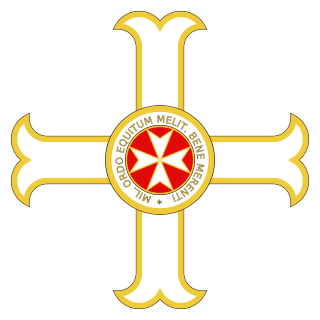The British honours system is a means of rewarding individuals' personal bravery, achievement, or service to the United Kingdom and the British Overseas Territories. The system consists of three types of award – honours, decorations and medals:

Military awards and decorations are distinctions given as a mark of honor for military heroism, meritorious or outstanding service or achievement. A decoration is often a medal consisting of a ribbon and a medallion.
The Australian honours and awards system refers to all orders, decorations, and medals, as instituted by Letters patent from the Monarch of Australia and countersigned by the Australian Prime Minister at the time, that have been progressively introduced since 14 February 1975. The Australian honours and awards system excludes all state and local government, and private, issued awards and medals.
To be mentioned in dispatches describes a member of the armed forces whose name appears in an official report written by a superior officer and sent to the high command, in which their gallant or meritorious action in the face of the enemy is described.

The Military Outstanding Volunteer Service Medal (MOVSM) is a military award which was created under Executive Order 12830 by George H. W. Bush on January 9, 1993. The medal was designed by the Institute of Heraldry and was first issued in December 1993.

An order is a visible honour awarded by a sovereign state, monarch, dynastic royal house or organisation to a person, typically in recognition of individual merit, that often comes with distinctive insignia such as collars, medals, badges, and sashes worn by recipients.
The NATO Medal is an international military decoration which is awarded to various militaries of the world under the authority of the North Atlantic Treaty Organization (NATO). It is manufactured by Eekelers-Centini Intl, of Hemiksem, Belgium.

Civil awards and decorations of the United States are awards and decorations of the United States of America which are bestowed by various agencies of the United States government for acts of accomplishment benefiting the nation as a whole. U.S. civil awards and decorations are typically issued for sustained meritorious service or for eminence in a field of endeavour, though there are also awards and decorations for a specific heroic act.

The orders and decorations conferred upon civilians and military personnel in the Republic of the Philippines are listed by order of precedence. Philippine civilian orders and decorations are conferred by the President of the Philippines in his or her capacity as head of state. In certain instances, the conferment of certain orders and decorations requires the concurrence of the Congress of the Philippines, or of certain advisory bodies.
Authorized foreign decorations of the United States military are those military decorations which have been approved for wear by members of the United States armed forces but whose awarding authority is the government of a country other than the United States.
Orders, decorations, and medals of Georgia are the orders, state decorations and medals that are granted by the national government of Georgia for meritorious achievements in national defense, state improvement, and the development of democracy and human rights.

An order of chivalry, order of knighthood, chivalric order, or equestrian order is an order of knights typically founded during or inspired by the original Catholic military orders of the Crusades, paired with medieval concepts of ideals of chivalry.
South African orders, decorations and medals are those military and civilian orders, decorations and medals issued by the Government of South Africa. The following is a (non-exhaustive) list of these:
The South African honours system consists of orders, decorations, and medals which are conferred on citizens, and others, to recognise a range of services and achievements. The system has developed since 1894.
Portugal has a system of orders, decorations, and medals as a means of honouring individuals for personal bravery, achievement, or service to Portugal.

The Order pro Merito Melitensi is the order of merit of the Sovereign Military Order of Malta, established in 1920. It is awarded to recipients who have brought honour to the Sovereign Military Order of Malta, promoted Christian values and for charity as defined by the Roman Catholic Church. Unlike Knights or Dames of the Order of Malta, those decorated with the Order pro Merito Melitensi are not invested in a religious ceremony, do not swear any oath or make any religious commitment. It may therefore be bestowed upon non-Catholics. Conferees include prominent statesmen, such as Presidents Ronald Reagan, who received it while still in office, and George H.W. Bush.

The orders, decorations and medals of Finland form a system through which the Finnish government shows its respect to persons who have distinguished themselves on some walk of life. The legal basis of the system is the Act on the displays of public recognition (1215/1999) which grants the president the authority to issue decrees on orders, medals and titles.
The Armed Forces of India are eligible for a myriad of military decorations. Decorations are awarded for extraordinary bravery and courage, as well as distinguished service during times of war and peace. Service and campaign medals have been awarded throughout the history of India as an independent state.

The Union of South Africa King's Medal for Bravery, Silver is the lesser of two classes of a South African civil decoration for acts of bravery that was in use from 1939 to 1952, when the country was a constitutional monarchy in the British Commonwealth. The medal was instituted by King George VI on 23 June 1939.

In 1895, Queen Victoria authorised Colonial governments to adopt various British military decorations and medals and to award them to their local military forces. The Colony of Natal introduced this system in August 1895 and, in 1897, instituted the Distinguished Conduct Medal (Natal), post-nominal letters DCM.









